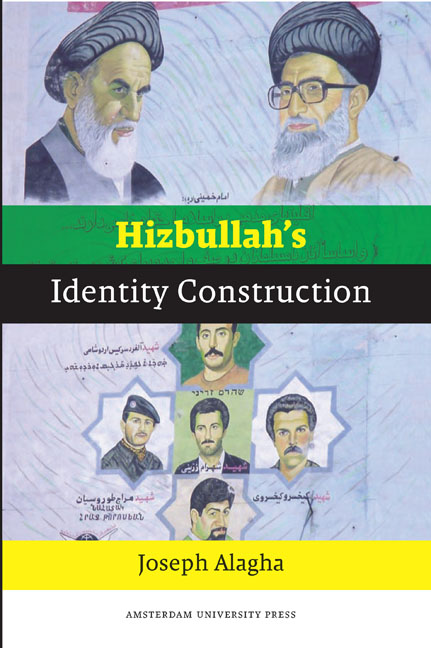Book contents
- Frontmatter
- Dedication
- Contents
- A Note on Transliteration
- Acknowledgements
- List of Abbreviations
- Summary
- Introduction and Analytical Framework
- 1 Tolerance and Discrimination: Ahl Al-Dhimma in the Islamic Order
- 2 Interpretation and Authority: Wilayat Al-Faqih
- 3 Political Violence: Terrorism and 9/11
- 4 Political Violence: Suicide Operations
- 5 From Cooptation to Contestation to Political Power
- 6 The Doha 2008 Accord and its Aftermath
- 7 The Eighth Conclave: A New Manifesto (November 2009)
- 8 Epilogue: Future Prospects – Disarmament and the Peace Process
- Afterword
- Glossary
- Additional Reading
- Notes
- Selected Bibliography
- Index
- Praise for Hizbullah's Identity Construction (1978-2010)
4 - Political Violence: Suicide Operations
Published online by Cambridge University Press: 19 January 2021
- Frontmatter
- Dedication
- Contents
- A Note on Transliteration
- Acknowledgements
- List of Abbreviations
- Summary
- Introduction and Analytical Framework
- 1 Tolerance and Discrimination: Ahl Al-Dhimma in the Islamic Order
- 2 Interpretation and Authority: Wilayat Al-Faqih
- 3 Political Violence: Terrorism and 9/11
- 4 Political Violence: Suicide Operations
- 5 From Cooptation to Contestation to Political Power
- 6 The Doha 2008 Accord and its Aftermath
- 7 The Eighth Conclave: A New Manifesto (November 2009)
- 8 Epilogue: Future Prospects – Disarmament and the Peace Process
- Afterword
- Glossary
- Additional Reading
- Notes
- Selected Bibliography
- Index
- Praise for Hizbullah's Identity Construction (1978-2010)
Summary
ABSTRACT
After the nearly complete Israeli withdrawal from Lebanon in May 2000, Hizbullah had not committed a single martyrdom operation although it engaged, on many occasions, the Israeli soldiers in Shib‘a and kidnapped three soldiers on 7 October 2000 and two on 12 July 2006. Contrary to what has been rumored, the party did not conduct martyrdom operations in the ‘Second Lebanon War’ or the July 2006 War since Hizbullah had the required arsenal to face the invading IDF and was able to inflict heavy casualties, killing more than 100 soldiers. In fact, Hizbullah's last martyrdom operation was conducted in 1999.
The basic question of this chapter is to study how religious, political, and national discourse is used to justify martyrdom for Islamic movements, in particular the Lebanese Hizbullah. (In other words, this chapter is about how nationalist and political discourses intermingle with a religious discourse on martyrdom, and how Hizbullah, an organization perceived as religious/fundamentalist, is relying, in addition to religious discourse, on nationalist and political discourses in its representation of martyrdom). My main concern is to analyze how the religious authorities of Hizbullah deal with this question, and how this discourse changes overtime. Thus, I endeavor to expose Hizbullah's religious-political discourse and analyze fatwas (religious edits) and speeches dealing with the issue of martyrdom. I contest the commonly held view that regards martyrdom as a specifically Shi‘ite phenomenon, arguing that, in addition to Sunni Palestinians, Lebanese nationalists, from all religious denominations, have also carried out such operations. I would like to debunk a few myths too, for instance the one regarding the social background of suicide bombers. I endeavor to rupture stereotypes and challenge the master narrative on the Islamic movements’ constituency being “made up of poor desperate people who commit suicide so that they can enjoy the virgins in Paradise.” The problematic is that although martyrdom has become the trademark of radical Islamic groups, it was not solely carried out by them. I purport that the icon that both parties, secularists and Islamists, embraced is that martyrdom operations were conducted in order to uphold the honor, pride, and dignity of the ‘nation’ (‘izzat wa karamat al-umma).
- Type
- Chapter
- Information
- Hizbullah's Identity Construction , pp. 87 - 112Publisher: Amsterdam University PressPrint publication year: 2012

